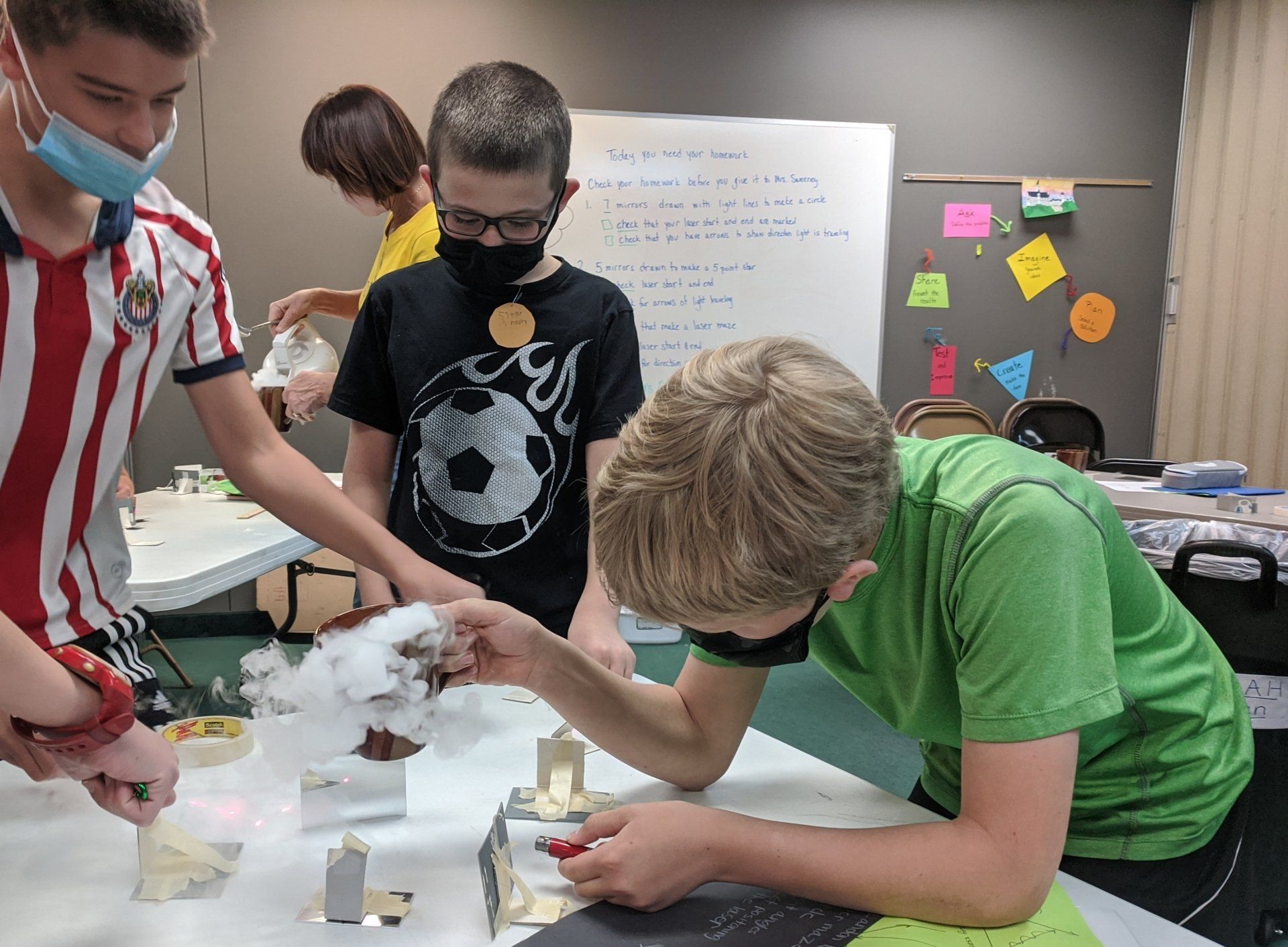Classical Academy for Homeschoolers
About Us
Mission and Vision
PRA Classical Academy exists to encourage and equip parents, educate students with excellence, and integrate home and school learning experiences to prepare students for success at the next level and beyond.
The goal is to:
- Create a community of deep thinkers through academically-rich, experiential learning.
- Assist homeschool families with a classical, college-preparatory education.
- Facilitate the cooperation of parents, teachers, and students.
- Create a learning environment that fosters growth in character, high academic achievement, and the love of learning.
- Cultivate responsible, productive citizens.
What is a Classical Approach?
Why we've chosen a classical, university-style approach to education.
What is a Classical Approach to Education?
A classical education is one that is highly focused on language. This means that students will be exposed to material through READING, LISTENING, and WRITING. A classical education also recognizes three stages of learning: Grammar (grades K-3), Logic (grades 4-8), and Rhetoric (grades 9 and up).
In the Grammar stage, the building blocks for all other learning are laid. Children at this age (K-4) actually find memorization fun. So during this period, education involves not self-expression and self-discovery, but rather the learning of facts.
The Logic stage (5-8) is when children begin processing the information to which they have been exposed. Much of this processing is accomplished through questioning. Students at this stage begin to think more abstractly than they have previously. They begin to ask why? during this stage rather than taking a teacher (or parent's) word for it.
A classical approach also seeks to connect what students are learning, so books assigned may be from the same time period as the history lessons. Science may introduce scientists or inventions that are from that same period, and writing assignments may be focused around those same ideas and concepts.
A classical education also strives to use Bloom's Taxonomy effectively. Bloom's Taxonomy says that there are six levels of learning that build upon each other: Knowledge, Comprehension, Application, Analysis, Synthesis, and Evaluation.
For a more in-depth explanation of a Classical Education, visit The Well-Trained Mind.
The Benefits of our Model:
- Strong parental involvement with the goal of keeping the student grounded in his/her family’s values and building on this foundation while preparing for the college years.
- Experiential instruction using hands-on projects to fully engage the student.
- Character development from caring teachers who weave these vital principles into class time.
- Small school setting where traditional classroom etiquette is expected.
- Small class sizes that provide for personal attention from the teacher.
- Social interactions which allow students to form wonderful friendships with their fellow classmates.
- Flexible lifestyle with off-campus days that afford incredible opportunities for flexibility in family life.
- For grades 3-8, assignments and grading in the core subjects are provided by the teacher. Parents should supplement as they wish in these subjects while maintaining full responsibility for other subjects.
- Student responsibility grows as he or she learns to take initiative and work independently within a university-style schedule.
Important Information
Quick Links
Important Information
Email Us
Call Us
Attendance Line
Fax Us
Find Us
Our Other Programs
Preschool/Kindergarten Prep Classical Academy for HomeschoolersDownload Our App
The Flyer School app connects parents, teachers and administrators to important resources and tools that keeps everyone more informed and involved.








